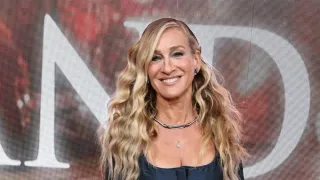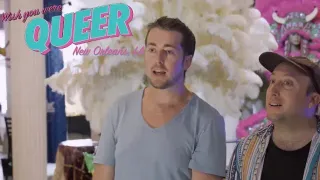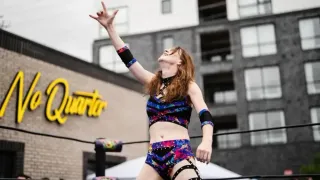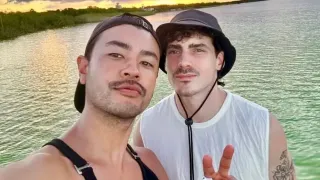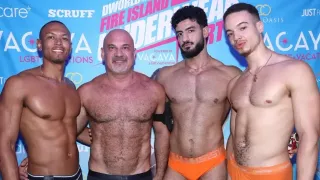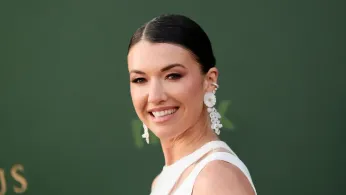
Today
‘Survivor’ Icon Parvati Shallow Embraces Her Queerness, Divorce, and ‘Villainy’ in New Memoir ‘Nice Girls Don’t Win’
READ TIME: 3 MIN.
Parvati Shallow, one of the most celebrated and strategic competitors in the history of ‘Survivor,’ has stepped into the spotlight once again—not as a contestant, but as an author and advocate for authenticity. In a recent series of interviews coinciding with the July release of her memoir ‘Nice Girls Don’t Win: How I Burned It All Down to Claim My Power,’ Shallow discussed her journey in embracing her identity as “fully queer,” her divorce, and the power she has found in rewriting her narrative—including the label of “villain” that has often accompanied her public persona .
Shallow’s coming out journey was catalyzed in part by her participation in the reality competition series ‘The Traitors.’ During pre-show preparations, a simple marketing form asking about LGBTQ+ identity prompted her to reflect on her truth. “They had a drop-down for LGBTQ+ and they said, ‘Are you? Are you an ally, or none of the above?’ And I was like, ‘I’m an ally.’ And Mae is like, ‘…No, you’re not,’” Shallow recalled in a candid interview on ‘The Pride Has Spoken’ podcast . The exchange with comedian Mae Martin, Shallow’s partner, helped her realize she was ready to live openly.
This realization led to Shallow’s public coming out on New Year’s Eve 2023, where she declared on social media, “We’re here. We’re queer. Happy new year,” alongside Martin . For Shallow, being fully out has provided a sense of freedom and wholeness that she’d never previously experienced, both in her personal life and in the competitive world of reality television .
Shallow’s memoir also explores her recent divorce and the profound self-discovery that followed. While much of her public life has been defined by her strategic brilliance and social acumen, Shallow writes about the vulnerability and pain that accompanied the end of her marriage. She describes how the dissolution of her relationship forced her to confront and ultimately embrace all aspects of herself, including her queerness, her ambitions, and her capacity for reinvention .
In interviews, Shallow has drawn a stark contrast between her earlier years—when “powerful” meant playing the part others wanted her to play—and her current sense of self-trust and autonomy. “Now my power comes from a different source. I am no longer in a place of trying to get anything from anybody. I don't have to prove how powerful I am to anybody else,” she told Paper Magazine. She credits her divorce and coming out as crucial steps in aligning her life with her values and desires .
Shallow’s reputation as a ‘Survivor’ villain has always been both celebrated and scrutinized. In ‘Nice Girls Don’t Win,’ she examines how the label of “villain” was often shorthand for a woman who refused to conform to expectations of niceness, passivity, or self-sacrifice. She writes about the gendered double standards she faced and how those same qualities—confidence, cunning, ambition—were lauded in male contestants.
In her own words, Shallow now sees “villainy” as a kind of authenticity: “There’s a lot of freedom that comes with that. I like myself so much more now… I’m gonna be me. I’m gonna say what I wanna say; I’m gonna love who I wanna love; I’m gonna do what I wanna do; I’m gonna offer the things I wanna offer, and my life can be an example for other people to step into their own authenticity and integrity” .
Her memoir is unapologetic in its challenge to the “nice girl” archetype, arguing that rejecting performative likability is essential to living truthfully—especially for women and LGBTQ+ people navigating public and private scrutiny .
Released during Pride season, ‘Nice Girls Don’t Win’ has resonated with LGBTQ+ audiences and fans of reality television alike. Shallow’s willingness to share her vulnerabilities, celebrate her queerness, and critique the structures that reward conformity over authenticity marks her as a compelling new voice in the broader conversation about identity, representation, and empowerment .
With upcoming appearances on ‘Australian Survivor: Australia vs. The World’ and continued advocacy for LGBTQ+ visibility, Shallow’s journey is far from over. Her story serves as a testament to the power of embracing complexity, rejecting false binaries, and living—and competing—on one’s own terms.
